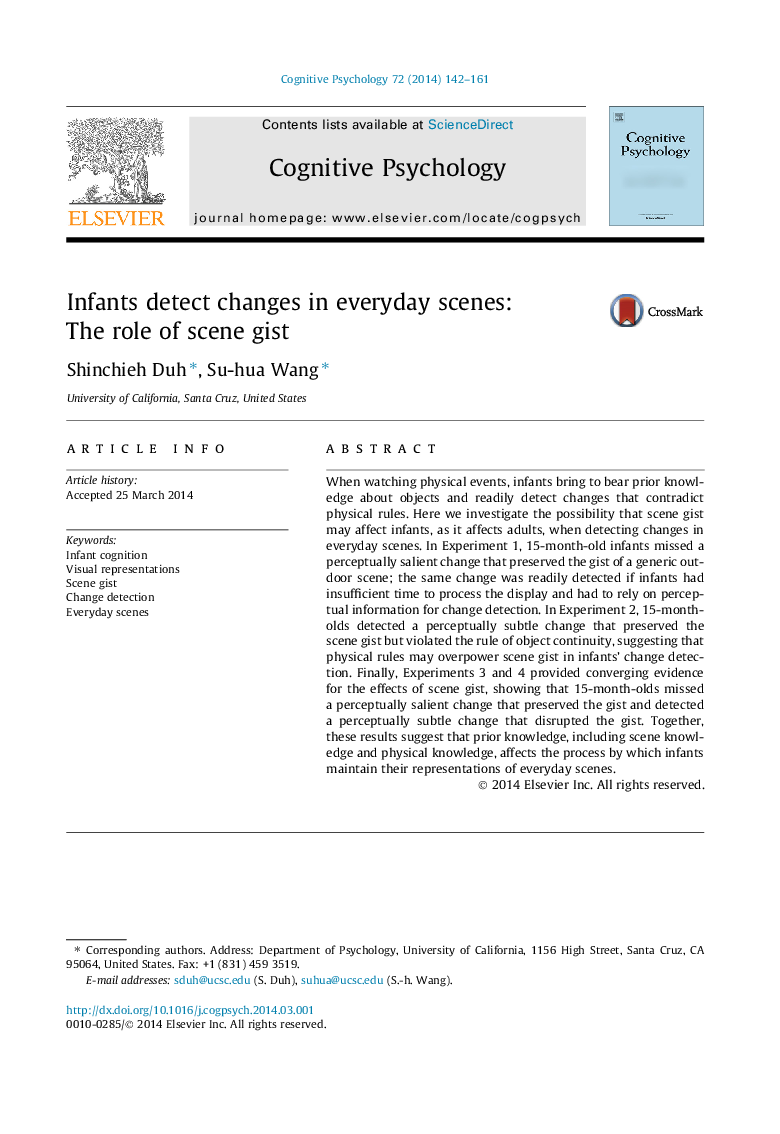| Article ID | Journal | Published Year | Pages | File Type |
|---|---|---|---|---|
| 7272814 | Cognitive Psychology | 2014 | 20 Pages |
Abstract
When watching physical events, infants bring to bear prior knowledge about objects and readily detect changes that contradict physical rules. Here we investigate the possibility that scene gist may affect infants, as it affects adults, when detecting changes in everyday scenes. In Experiment 1, 15-month-old infants missed a perceptually salient change that preserved the gist of a generic outdoor scene; the same change was readily detected if infants had insufficient time to process the display and had to rely on perceptual information for change detection. In Experiment 2, 15-month-olds detected a perceptually subtle change that preserved the scene gist but violated the rule of object continuity, suggesting that physical rules may overpower scene gist in infants' change detection. Finally, Experiments 3 and 4 provided converging evidence for the effects of scene gist, showing that 15-month-olds missed a perceptually salient change that preserved the gist and detected a perceptually subtle change that disrupted the gist. Together, these results suggest that prior knowledge, including scene knowledge and physical knowledge, affects the process by which infants maintain their representations of everyday scenes.
Related Topics
Life Sciences
Neuroscience
Cognitive Neuroscience
Authors
Shinchieh Duh, Su-hua Wang,
